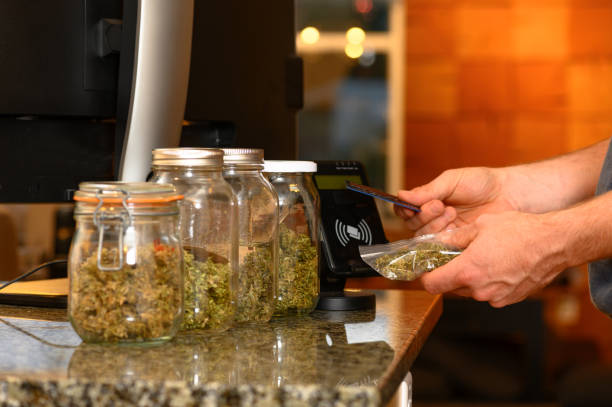Share This Article
In recent years, the legalization of recreational cannabis has sparked a surge in the establishment of dispensaries across various states and countries. These dispensaries offer a wide range of cannabis products, from dried flower and edibles to concentrates and topicals, catering to both recreational users and individuals seeking medicinal benefits. As attitudes toward cannabis continue to evolve, so too does the landscape of these retail establishments.
The Evolution of Cannabis Legislation
The legalization of recreational cannabis has been a gradual process, with an increasing number of jurisdictions embracing its potential benefits while implementing regulations to ensure responsible use. States like California, Colorado, Oregon, and Washington have been at the forefront of this movement, paving the way for others to follow suit. With each passing year, more states and countries are exploring legalization, leading to a burgeoning market for cannabis products.
Understanding the Role of Recreational Cannabis Dispensaries
Recreational cannabis dispensaries serve as more than just retail outlets; they are often hubs of education, community engagement, and advocacy. Knowledgeable staff members provide guidance on product selection, dosing, and consumption methods, ensuring that customers have a safe and enjoyable experience. Additionally, many dispensaries host events, workshops, and educational seminars to promote cannabis literacy and foster a sense of belonging within the cannabis community.
The Impact of Cannabis on Health and Wellness
While recreational cannabis is primarily associated with its psychoactive effects, it also possesses therapeutic properties that have garnered attention from the medical community. Cannabinoids such as THC and CBD have been studied for their potential to alleviate symptoms associated with various health conditions, including chronic pain, anxiety, insomnia, and nausea. Additionally, emerging research suggests that cannabis may have anti-inflammatory and neuroprotective effects, making it a promising adjunct therapy for conditions like Parkinson’s disease, multiple sclerosis, and epilepsy.
Cannabis and Prostate Cancer Surgery: Exploring the Connection
Prostate cancer is a significant health concern for men, with surgery being one of the primary treatment options. Prostatectomy, the surgical removal of the prostate gland, is often recommended for localized prostate cancer or as part of a comprehensive treatment approach for advanced disease. While cannabis is not a cure for prostate cancer, it may offer potential benefits for patients undergoing surgery:
- Pain Management: Following prostate cancer surgery, patients may experience discomfort and pain. Cannabis, particularly strains rich in THC, has analgesic properties that can help alleviate pain and improve overall comfort during the recovery period.
- Nausea and Appetite Stimulation: Surgery and anesthesia can lead to nausea and loss of appetite. Cannabis, especially strains high in THC, has been used to combat nausea and stimulate appetite, which may aid in postoperative recovery.
- Stress and Anxiety Reduction: The diagnosis of prostate cancer and the prospect of surgery can induce significant stress and anxiety. Cannabis strains containing CBD have anxiolytic properties that may help reduce preoperative anxiety and promote relaxation.
- Sleep Improvement: Quality sleep is essential for the healing process. Cannabis strains with higher CBD content have been shown to promote relaxation and improve sleep quality, which may benefit patients recovering from prostate cancer surgery.
Navigating the Future of Cannabis and Healthcare
As recreational cannabis dispensaries continue to proliferate, it is essential to recognize their potential impact on public health and healthcare delivery. While cannabis offers promise as a therapeutic agent, it is crucial to approach its use with caution and respect for individual preferences and medical needs. By fostering open dialogue, conducting rigorous research, and implementing evidence-based regulations, we can harness the potential of cannabis to enhance health and wellness while ensuring safe and responsible consumption practices for all.
